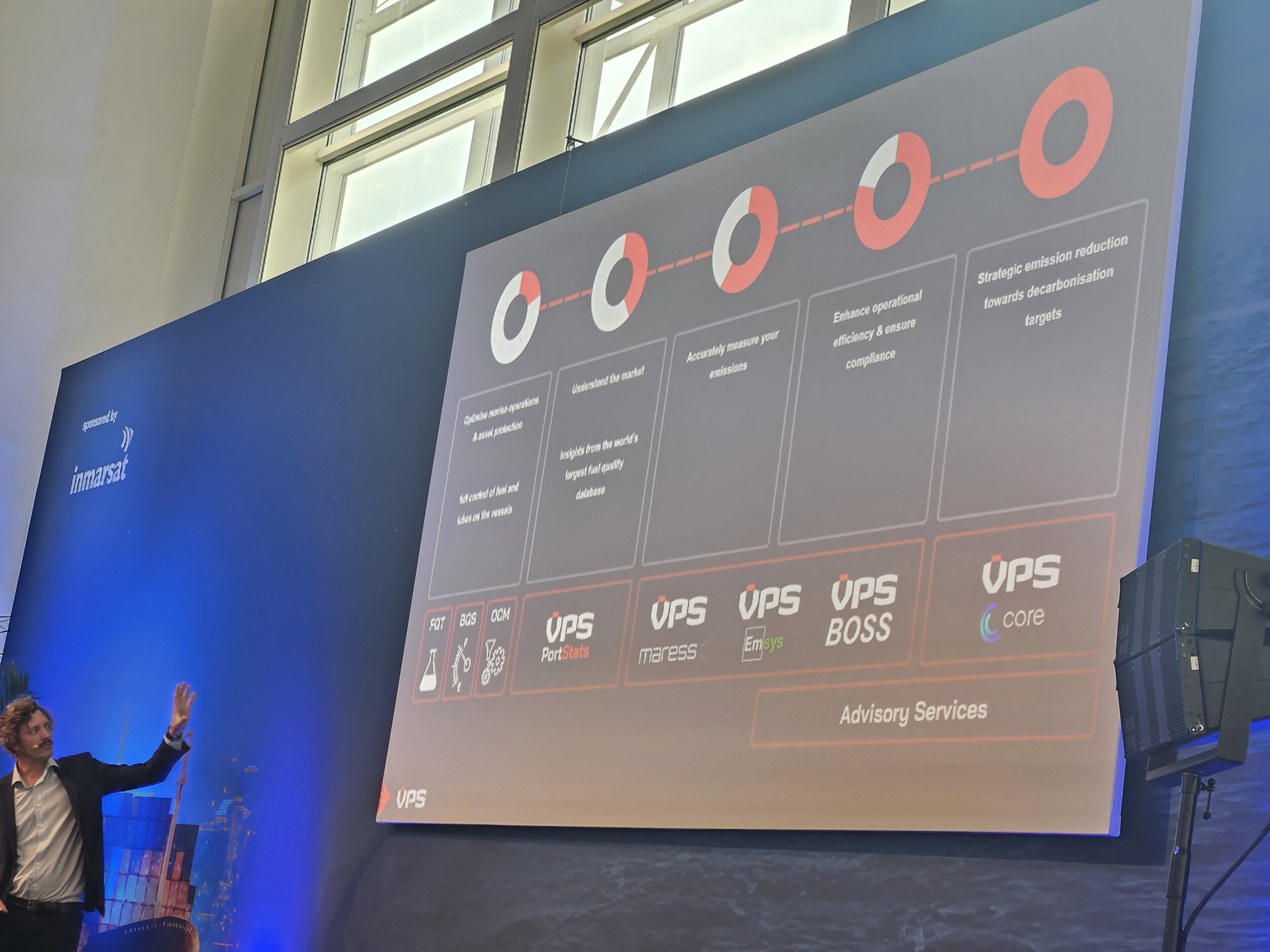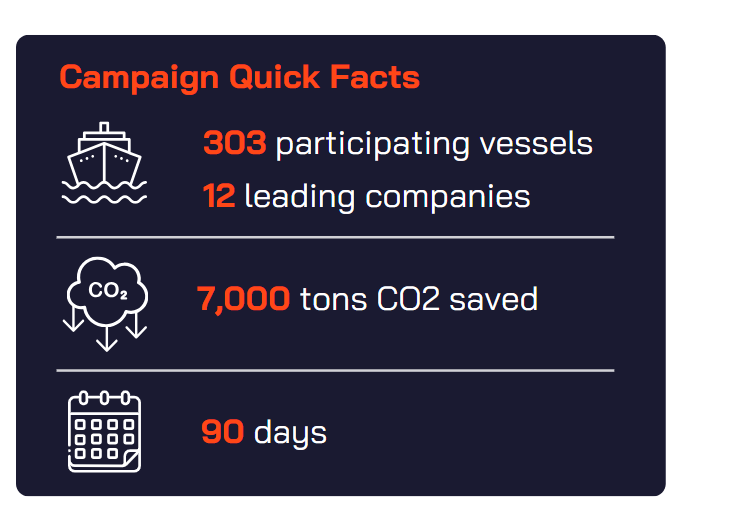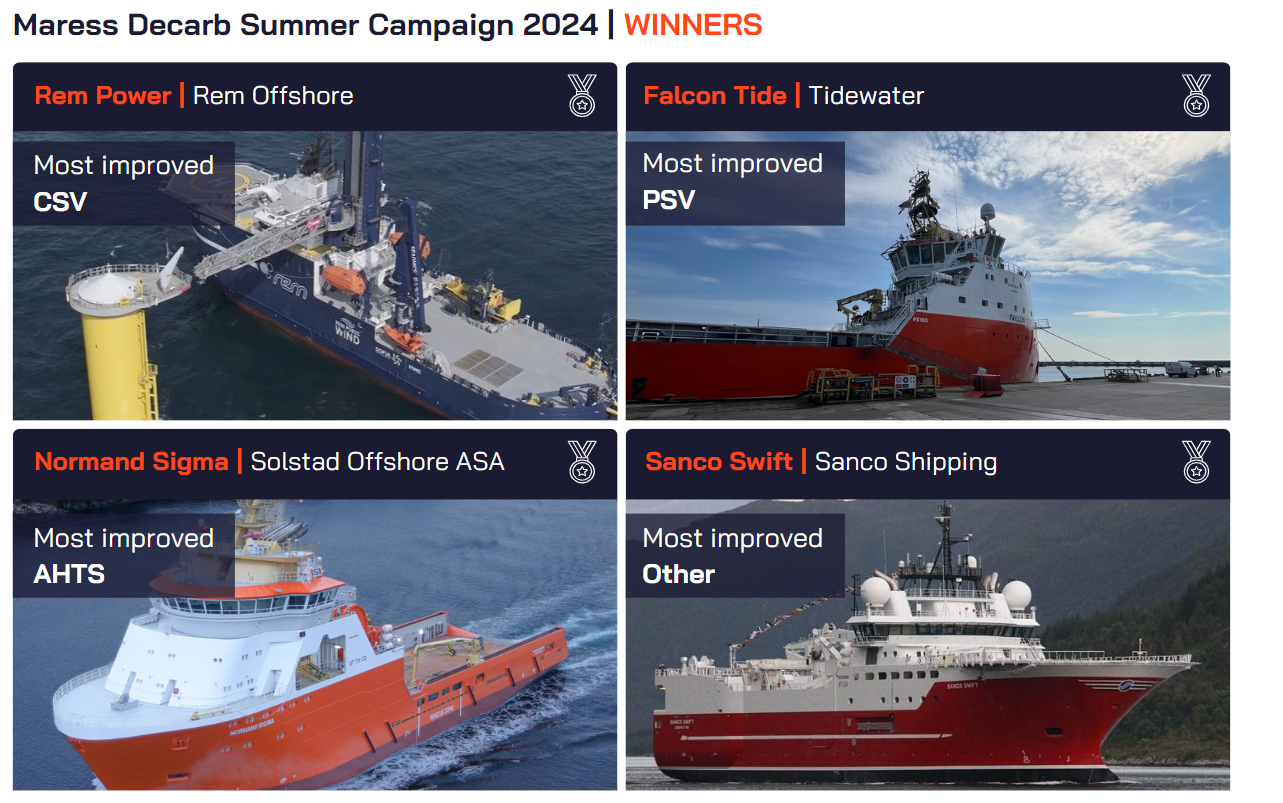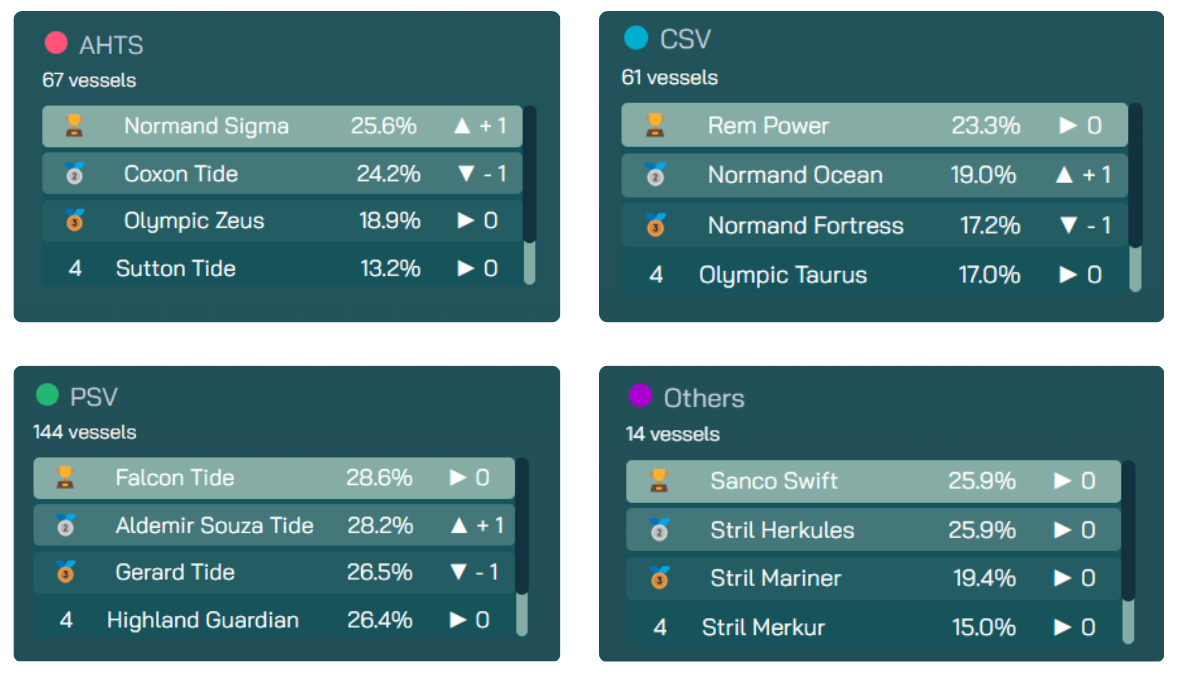Article by Steve Bee, Group Commercial Director
Ever-increasing environmental legislation in relation to reducing emissions from the global maritime fleet, has driven the development of numerous new fuels, since the last revision of the international marine fuel standard, ISO8217:2017. We have seen in recent years the introduction of Very Low Sulphur Fuel Oils (VLSFOs) to support meeting the IMO2020 change in reducing the global cap for sulphur levels within marine fuels to 0.50%. This has been followed by a transition to include synthetic, renewable and recycled content within marine fuels, in the form of biofuels. These will support the reduction of carbon dioxide emissions to help comply with the IMO 2030/2050 targets and numerous other legislative requirements such as, Monitoring, Recording & Verification (MRV), CII & EEXI, EU Emissions Trading Scheme and FuelEU Maritime.
As the world’s leading marine fuel testing company, VPS have over the years, witnessed a slow uptake of new revisions of the ISO8217 standard, due to a combination of price and initial availability.
According to our most recent data, 12.6% of fuel samples that are received for testing were purchased in accordance with the 2005 standard, 47.7% with the 2010 revision, 19.3% with the 2012 version, and just 20.4% with the most recent revision published in 2017.

Testing to a standard specification which is almost 20 years old and superseded by four revisions, the 2005 revision offers little in the way of vessel and environmental protection with respect to modern fuels, yet over 12% of fuels are still purchased against this revision. The cat-fine limit of 80ppm, has elevated risk of vessel damages than the 60ppm limit introduced as far back as 2010. Sulphur limits are widely outdated with the requirements of the IMO2020, 0.50% limit, stating sulphur limits of 3.50%, 4.00% and 4.50%, for the various residual grades, offering little in regard to today’s SOx regulations. In addition, Clause 5 of ISO8217:2005, offers no consideration of today’s more complex fuel mix and the presence of FAME, HVO, GTL, or BTL in today’s fuel supply chain.
Today, the most popular revision of the standard is still ISO8217:2010, accounting for almost 50% of all fuel samples received for testing. This 14-year old fuel standard, pre-empted the future changes in sulphur limit regulations, by removing sulphur limits from Table 2. However, this old standard revision did not account for the statutory requirements of IMO2020 and the introduction ten years later, of the 0.50% sulphur VLSFO fuels which came to the market to address the legislative reduction in SOx emissions from global shipping. There is no specification within this revision for VLSFOs, currently the most popular marine fuel type purchased today. In addition, for VLSFOs there has been a reduction in the spread of viscosity range from 2021 to 2024. In 2021 the majority (37%) of the VLSFO’s supplied in the marine industry had a viscosity in the range of 80 to 100 cSt. This has this changed over the years showing an increasing trend in the viscosity, so that in 2024 we see an increase to 43% of the VLSFO’s supplied in the marine industry with viscosity in the range of 80 to 100 cSt. However, all samples are tested to a 380Cst specification, with only a maximum viscosity specification and no minimum viscosity limit, which would have been extremely helpful especially to the operators to plan ahead. Yet, a positive introduction was the Cat-fine limit reduction to 60ppm.
For distillate grades, ISO8217:2010 introduced a new grade, DMZ, with minimum viscosity 3.000 mm2/s at 40°C. Specification limits were added for hydrogen sulphide, acid number, oxidation stability and lubricity. In addition, the minimum viscosity requirement for DMA was raised to 2.000 mm2/s and a minimum viscosity requirement of 2.000 mm2/s added for DMB.
Some changes were also made to the residual grades.
Yet Clause 5 within ISO8217:2010, has the following statement:
5.4 The fuel shall be free from bio-derived materials other than 'de minimis' levels of FAME (FAME shall be in accordance with the requirements of EN 14214 or ASTM D6751). In the context of this International Standard, “de minimis” means an amount that does not render the fuel unacceptable for use in marine applications. The blending of FAME shall not be allowed.
The ISO8217:2017 revision currently accounts for only 20% of fuels purchased, which is astonishingly low, considering that up to May 2024, it was the most recent revision? This revision did move nearer than its predecessors towards accounting for the presence of renewable feedstocks and FAME.
This sixth revision had changes in the general requirements to allow hydrocarbons from co-processing of renewable feedstock with petroleum feedstock and hydrocarbons from synthetic or renewable sources. Additional marine distillate grades, DFA, DFZ and DFB were added with a maximum fatty acid methyl ester(s) (FAME) content of 7.0 volume %
Requirements to report cloud point and cold filter plugging point were added to winter grades of DMA and DMZ, whilst the sulphur content of DMA and DMZ was reduced to a maximum of 1.00 mass % and the sulphur content of DMB reduced to a maximum of 1.50 mass %. Along with these changes, the “de minimis” FAME level was increased to approximately 0.5%.
Finally, Clause 5 contained the following statement:
5.1 The fuel composition shall consist predominantly of hydrocarbons primarily derived from petroleum sources while it may also contain hydrocarbons from the following:
- synthetic or renewable sources such as Hydrotreated Vegetable Oil (HVO), Gas to Liquid (GTL) or Biomass to Liquid (BTL);
- co-processing of renewable feedstock at refineries with petroleum feedstock.
Therefore, whilst upon release, each revision of ISO8217 has introduced many improvements relating to marine fuel quality at the time of release, the drive to reduce emissions from global shipping has seen many changes in fuels, introduced at a faster rate than the updates within ISO8217. As a consequence, buying fuels to older revisions, will only elevate the levels of risk to a vessel, crew health & safety and the environment. So, in May 2024, 80% of marine fuels are still being purchased to ISO82217 revisions which are between 12-19 years old, bearing little resemblance to the fuels available in today’s marine fuel market.
The introduction of the latest and 7th revision of the standard, ISO8217:2024, released on 30th May 2024, has now addressed a number of the requirements associated with these newer fuels, to support the industry on its decarbonisation journey.
In addition to ISO8217:2024, ISO8216:2024, released prior to the release of ISO8217:2024, identifies the various fuel grades introduced within the new standard and explaining the designated fuel codes.
VPS Review of ISO8217:2024
VPS believe the new revised standard ISO8217:2024, is a major step forward from the previous 2017 6th revision and will provide global shipping and the bunker industry with greater support than its predecessor.
Further to this, VPS would like to provide additional fuel quality and fuel management considerations:
Table 1 and Table 3 emphasises on distillates and biofuels with residual and distillate blends including FAME, HVO, GTL and BTL. VPS have tested several biofuels over the recent years with different bio-components, such as Cashew Nut shell Liquid (CNSL) and Tyre Pyrolysis Oil (TPO), Bio FAME residues, Algae oil all of which exhibit different behaviours and fuel management challenges, to those vessels choosing to use such fuel blends. Some of the key parameters that are required to identify the quality of such fuels are not considered in this revision of the standard.
Table 3 – Bio-Residual Marine Fuels
FAME has six key characteristics, which require a higher degree of monitoring than fossil fuels:
• Energy Content
• Renewable Content
• Stability
• Cold-flow Properties
• Corrosivity
• Microbial Activity
Should a fuel be a Bio-residual blend, then there is a greater potential for wax precipitation from the fuel, where the risks could be mitigated by utilising the Wax Appearance Temperature (WAT)/Wax Disappearance Temperature (WDT) testing, to avoid the cold-flow issues associated with VLSFOs and FAME. Annex F indicates Pour Point is a sufficient cold-flow property test. However, recent history has shown wax can precipitate at relatively high temperatures in VLSFO blends, where WAT can provide key fuel management information relating to cold-flow behaviour.
In the footnotes i and j of Table 1, it highlights pour point does not guarantee operability for all ships in all climates and that fuel purchasers should ensure the cold-flow properties are suitable for the ship’s design and intended voyage.
Additionally, for some products, the standard tests may not be effective due to appearance, necessitating alternative methods for evaluating product usability. VPS statistics suggest that Wax Appearance Temperature (WAT) and Wax Disappearance Temperature (WDT) are among the ideal methods to assess the cold flow properties of biofuel blends, particularly when the blends are not clear. Statistics indicates that fuels with high WAT/WDT if not properly managed can cause severe operational issues. High WAT/WDT fuels although may not necessarily cause pumping issues while transferring, are known to cause blockage of purifiers, filters and fuel oil line due to sludge formation.
FAME does have issues relating to its stability and whilst Table 1 includes the Oxidation Stability test EN15751, this test does not appear in Table 3. Although VPS acknowledge the EN15751 was developed for use with distillate blends, we have conducted detailed method validation so this test method can also be used with residual FAME blends. Also, a further stability test is Iodine Value, which measures the degree of unsaturation of FAME, a determination of the level of reactivity of FAME. Including the Iodine Value measurement alongside the Oxidation Stability Test (EN15751) could enhance the level of protection for the vessel.
Considering that the biofuel used will be a blend with other marine fuel types, it is more susceptible to chemical contamination, beyond just the organic chlorides currently addressed in the standard. Therefore, incorporating a GCMS-based chemical screening test, capable of detecting over 70% of potential volatile contaminants, would have been advantageous for inclusion in Table 3.
Furthermore, since FAME is prone to elevated microbial contamination, including a Bacteria/Yeast/Fungi (BYF) test to monitor microbial activity would be valuable and should have been of advantage for inclusion in Table 3.
It is worth referencing the Singapore Standard WA2:2022, which comprehensively determines the quality of biofuels by utilizing many of the additional tests highlighted, which are not part of ISO8217:2024. This national standard on the specification of marine biofuels is mentioned in the MPA Port Marine Circular No. 21 of 2022 and was developed under the purview of the Chemical Standards Committee, a committee under the Singapore Standards Council.
Table 1: Distillate & Bio-distillate Marine Fuels
While Table 1 covers five of the six FAME characteristics requiring closer monitoring, it is important to note that both FAME and marine distillates exhibit potential for microbial activity. Therefore, including a Bacteria/Yeast/Fungi (BYF) test in Table 1 would have been beneficial.
Table 2: Residual Marine Fuels with Sulphur content below or at 0.50% by mass
Upon the introduction of VLSFOs to support IMO2020 compliance, it was recognised that these fuels exhibit poor cold-flow properties. WAT testing has and continues to provide, valuable information in relation to VLSFO fuel storage and transfer onboard vessels. The historical advice of storing fuel at greater than 10°C above its Pour Point, is no longer applicable to many VLSFOs, as wax, on numerous occasions, can be seen precipitating at greater than 20°C above Pour Point.
In addition, Table 2 and Table 4, could have benefited from a GCMS-based chemical screening test, to protect against potential damages associated with volatile chemical species such as, styrene and dicyclopentadiene, to name just two of many.
Considering that certain tests methods introduced in the new standard, such as the EN14077 for measuring total organic halogen content-Organic chlorides are not compliant with the ISO 4259-2 (used for dispute resolution) due to lack of precision statement, the importance of certain key tests such as GCMS screening although proprietary (i.e. may not comply to ISO 4259-2) cannot be overstated as the primary objective is to ensure the protection and safety of the vessel.
Annex K: Characterisation of residual marine fuels (Viscosity Gravity Constant -VGC)
A positive addition comes within Annex K, with the introduction of a calculation to determine the Viscosity Gravity Constant (VGC), (ISO 18588:2023).
VGC calculation and interpretation, based on ASTM D2501, offer a practical approach to identifying a fuel's tendency to be more paraffinic or aromatic. This applies for fossil residual marine fuels not containing FAME, as defined in ISO 8217, specifically for fuels listed in Table 2 and Table 4.
Values of VGC near 0.80 or below, indicate the fuel leaning towards being paraffinic in nature, while values greater than 0.92 indicate a preponderance of aromatic structures.
VPS can report VGC in our ISO8217:2024 testing service.
VPS fully support the publication and introduction of ISO8217:2024 as a major improvement to the international marine fuel standard for current modern-day fuels. VPS also recognise there is only so much time available to produce this highly anticipated and much needed revision. Throughout the ISO8217 development work relating to the preparation of this revision of the standard, VPS has represented Ship Operator views across numerous Working Group meetings, by our most senior technical and strategic management. Preparation of the standard must, by necessity, take on board divergent views and as such during its preparation, not all of the issues and recommendations raised by VPS and other committee members, made it into the final version.
As a result, we still expect ship owners and operators to require additional tests, beyond the scope of ISO8217:2024 testing, to ensure an even greater level of protection and safety to their vessels.
For more details regarding the ISO8217:2024 standard and how VPS can assist you with your marine fuel testing, please contact, your local VPS Account Manager, or marketing@vpsveritas.com
 Jan Wilhelmsson, COO, Digital & Decarbonisation of VPS stated, "We see a rapid development where the market is no longer willing to take the risk of not knowing -precisely- what the emissions from operations are. We are excited about the fact that the partnership with Normec Verifavia enables all Maress users to get their emission numbers verified. It will literally be a one stop shop for data collection, analytics, collaboration and verified emission reporting."
Jan Wilhelmsson, COO, Digital & Decarbonisation of VPS stated, "We see a rapid development where the market is no longer willing to take the risk of not knowing -precisely- what the emissions from operations are. We are excited about the fact that the partnership with Normec Verifavia enables all Maress users to get their emission numbers verified. It will literally be a one stop shop for data collection, analytics, collaboration and verified emission reporting." industry faces a crucial challenge: achieving transparency and driving progress towards a decarbonized future. Normec Verifavia's collaboration with VPS represents a significant step forward in this direction. By leveraging their expertise in data-driven decarbonization tools like Maress, we can empower asset owners to streamline the entire emissions data lifecycle. This will not only enhance the accuracy of reported data but also significantly reduce the administrative complexities faced by many stakeholders. This collaborative effort strengthens the foundation for a more sustainable maritime industry.”
industry faces a crucial challenge: achieving transparency and driving progress towards a decarbonized future. Normec Verifavia's collaboration with VPS represents a significant step forward in this direction. By leveraging their expertise in data-driven decarbonization tools like Maress, we can empower asset owners to streamline the entire emissions data lifecycle. This will not only enhance the accuracy of reported data but also significantly reduce the administrative complexities faced by many stakeholders. This collaborative effort strengthens the foundation for a more sustainable maritime industry.”

 Search
Search
 Customer
Customer



 collaboration reflects our dedication to providing our customers with the services and insights they need to navigate the complexities of the maritime industry effectively."
collaboration reflects our dedication to providing our customers with the services and insights they need to navigate the complexities of the maritime industry effectively."







